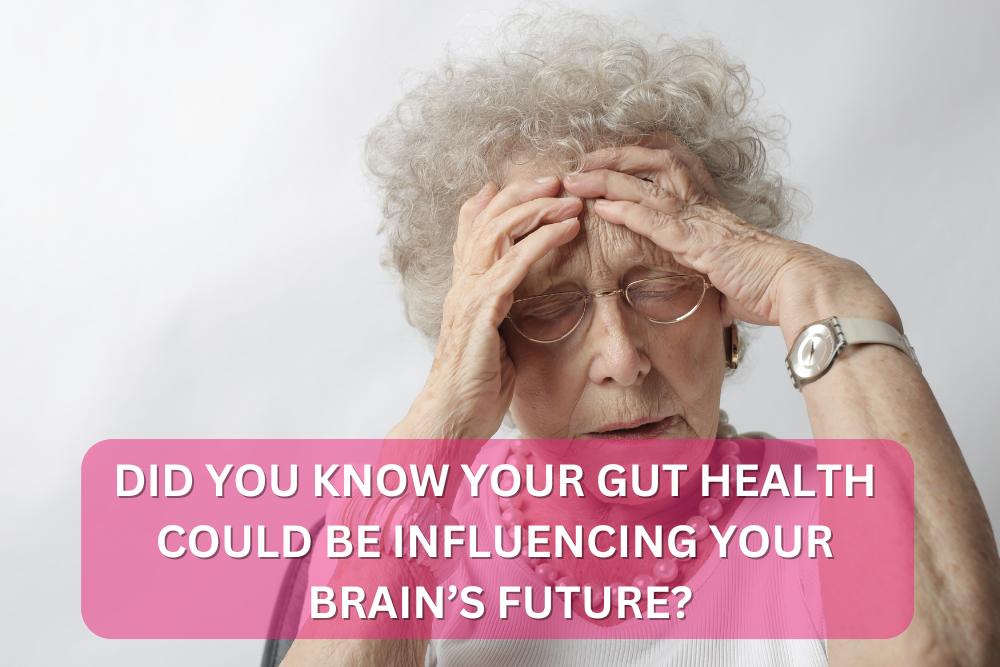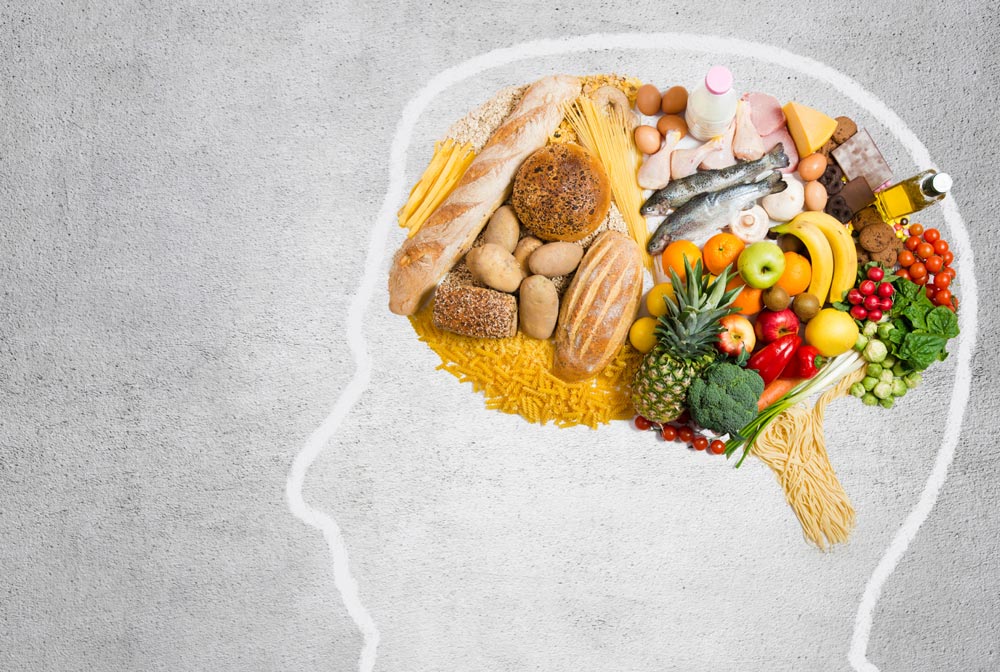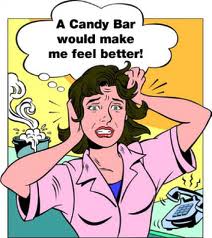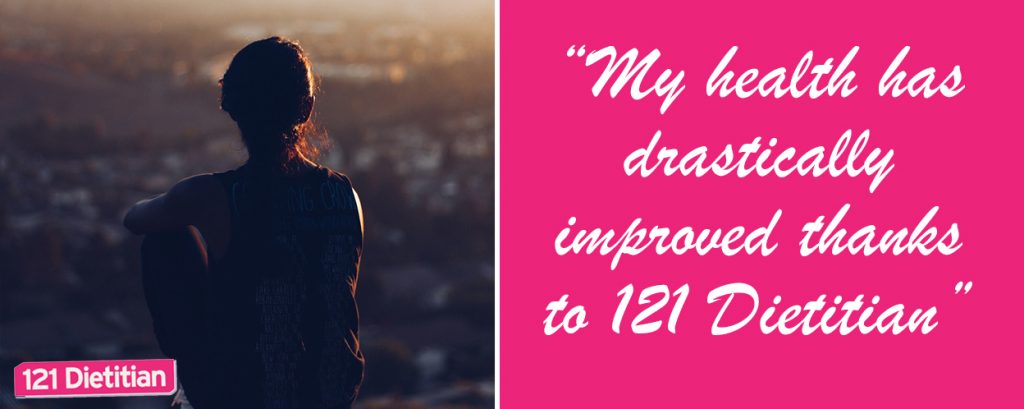How Your Digestive Health May Impact Alzheimer’s Disease Risk

Discover the fascinating link between your gut health and cognitive function from award-winning UK dietitian Gillian Killiner. Drawing from 30 years of clinical experience and groundbreaking research, learn how specific gut bacteria influence brain health and may help prevent Alzheimer’s disease. From beneficial bacterial strains to practical dietary strategies, this evidence-based guide reveals how to support your cognitive wellness through gut health. Featuring real client success stories and actionable steps you can take today. Book your consultation at 121 Dietitian’s Hollywood clinic or online to start your journey toward optimal brain health through personalised nutrition.
Aspartame: Insights from a Specialist Dietitian

Aspartame what is all the fuss about? As a dietitian with over two and a half decades of experience, I have always prioritized the well-being of my clients and promoted a balanced, healthy diet for each individuals needs, health, likes and dislikes etc. Throughout my career, I have encountered numerous questions about artificial sweeteners, particularly aspartame. In this blog, I would like to share my perspective on aspartame and explain why I prefer to steer clear of artificial sweeteners. What is Aspartame? Aspartame is an artificial sweetener that has been widely used as a sugar substitute in various food and beverage products. It is found in many sugar-free or “diet” options, such as soft drinks, chewing gum, and desserts. Aspartame is a synthetic substance that combines two ingredients: 1. Aspartic acid. This is a nonessential amino acid that occurs naturally in the human body and in food. Amino acids are the building blocks of protein in the body. The body uses aspartic acid to create hormones and to support normal function of the nervous system. Dietary sources include meat, fish, eggs, soybeans, and peanuts. 2. Phenylalanine. This is an essential amino acid that’s naturally present in most protein sources, but the body doesn’t produce it naturally. Humans have to get it from food. The body uses it to make proteins, brain chemicals, and hormones. Sources include lean meats, dairy products, nuts, and seeds. Combining these two ingredients creates a product that is about 200 times as sweet as regular sugar. A small amount can make food taste very sweet. It also provides very few calories. While aspartame is approved for use by regulatory authorities in many countries, its safety and health effects have been a topic of debate and scrutiny. The World Health Organization (WHO) has recently issued a new guideline regarding non-sugar sweeteners (NSS). According to this guideline, the use of NSS is not recommended for weight management or as a means to lower the risk of noncommunicable diseases (NCDs). Based on a thorough review of the available evidence, it has been found that (NSS) do not offer any long-term benefits when it comes to reducing body fat in both adults and children. The review’s findings indicate that prolonged use of NSS may have unintended consequences, including a higher likelihood of developing type 2 diabetes, cardiovascular diseases, and increased mortality rates among adults. Replacing free sugars with non-sugar sweeteners (NSS) may not be effective in achieving long-term weight control. According to Francesco Branca, WHO Director for Nutrition and Food Safety, it is important for individuals to explore alternative methods of reducing their consumption of free sugars. This can include opting for food options that naturally contain sugars, such as fruits, or choosing unsweetened food and beverages. Non-nutritive sweeteners (NSS) are not considered necessary for a balanced diet and do not contribute any significant nutritional value. It is recommended that individuals reduce their overall intake of sweeteners from an early age in order to enhance their overall health and well-being. (WHO 2023) Why I suggest avoidance of Aspartame and others Conclusion: After practicing as a dietitian for 26 years, I have witnessed time and time again patents coming to me with the highest intakes of artificial sweeteners struggling the most with their diet, weight, physical and mental health. Once they start to follow one of my programmes these problems are quickly resolved. (if interested do check out my google and facebook reviews) I am glad I have not wavered when others have challenged me and I have stood by my decision to not recommend artificial sweeteners, including aspartame. While aspartame may be deemed safe for consumption within approved limits, why risk it. We need more ‘high’-quality research to further assess these relationships. I will continue to educate people to prioritize a whole-food, nutrient-dense approach to healthy eating. By choosing natural alternatives and educating clients about the importance of mindful eating and moderation, I believe we can foster a healthier relationship with food that supports long-term well-being. So, what to do next or for anything else.. If you are needing help with your diet and health or anything else… we can assist you with this. Maybe you wish to change your eating habits, stop tracking or need help optimising the foods you eat to assist your mental health or your gut symptoms and are not sure what programme to select, please do contact us. We would love to help you or your family and friends with any nutrition-related queries big or small. If you want to book your programme TODAY we would love to help you. You can book a 121 Dietitian Programme today by clicking on the link below If you have enjoyed this blog we would love you to share this with your family and friends on your social media channels. Do visit our YouTube Channel for more on keeping your health optimal. If you are interested in how I overcame my Thyroid Autoimmune Condition do check out the About section below Before you go please check out our 121 Dietitian Shop created specifically for optimising your health. Gillian x
Mental Health -Exploring the Relationship with Antidepressants and Gut Microbiota

Mental Health As a specialist dietitian, I continually raise awareness about the impact and importance of diet on mental health. The recent Panorama programme regarding the difficulty of antidepressant withdrawal has highlighted the vast numbers of dependants, the need for alternatives, and if possible, avoiding them in the first place. This blog hopes to shed light on the important need and connection between diet and mental well-being exploring the intricate relationship between diet, mental health, antidepressants, and gut microbiota. The Significance of Diet in Mental Health The saying “you are what you eat” holds true when it comes to mental health. We have understood for many years there is a gut-brain axis, and know the complex communication network between the gut and the brain plays a vital role in mental well-being. Numerous pathways have been identified through which diet could plausibly affect mental health. These include modulation of pathways involved in inflammation, oxidative stress, epigenetics, mitochondrial dysfunction, the gut microbiota, tryptophan–kynurenine metabolism, the HPA axis, neurogenesis and BDNF (brain-derived neurotrophic factor), epigenetics, and risks with obesity. Mental Health – The Role of Nutrients We know multiple nutrients have been linked to improved mental health. I have spent the past 15 yrs of my 26 yr career, working with my patients to perfect their diets not only to be optimal for their physical wellbeing but mental health too. One group of well-known and researched nutrients are the omega-3s. These fatty acids can be found in fatty fish, walnuts, and flaxseeds but also consumed by the gallon by people in supplement form as our bodies can’t make them. (YouTube Video). Omega 3’s have good and bad press with research finding that high dose supplementation may cause atrial fibrillation and increase risk of bleeding. Consumed in their natural form is the best option as they have a known potential in reducing symptoms of depression and anxiety when consumed as part of a bigger nutrient selection. If needing a supplement using a plant based option is ideal (see below). Another well-known group of nutrients are B vitamins, found in whole grains, leafy greens, and legumes, are important for brain function and mood regulation. I see hundreds of patients take these in high doses either in singles like high dose B12 or high dose B6 believing “more is better” whilst continuing a poor quality diet. This is not recommended and can actually be at best making expensive urine and at worst cause toxic neuropathy, insomnia, headache, palpitations, anxiety and acne…. Understanding Antidepressants Antidepressant medications are commonly prescribed to manage mental health conditions such as depression and anxiety. Common ones include: citalopram (Cipramil) dapoxetine (Priligy) escitalopram (Cipralex) fluoxetine (Prozac or Oxactin) fluvoxamine (Faverin) paroxetine (Seroxat) sertraline (Lustral) vortioxetine (Brintellix) These medications work by increasing neurotransmitters in the brain, such as serotonin and noradrenaline. Whilst the exact mechanism of how these chemicals affect mood is not fully understood, it is believed that they help to regulate emotions and improve overall well-being. In the UK, around one in seven now take an antidepressant. Globally they have made the pharmaceutical industry billions. When the current generation of drugs was launched 35 years ago, they promised a safe and effective treatment, free from the side effects of older medicines. But have they lived up to those claims? While many people say they have benefited from taking antidepressants. Panorama revealed evidence of some companies trying to conceal concerns about their drugs, following patients who have suffered serious side effects as they continue their fight to be heard. The Panorama programme highlighted they are not a standalone solution and should be used in conjunction with other therapeutic approaches. Diet and Antidepressants: Interactions and Considerations It’s important to remember that what we eat can also play a significant role in how our bodies respond to antidepressant medications if they are taken. Certain foods and supplements can interact with these drugs, potentially reducing their effectiveness or causing unwanted side effects. Therefore, it’s essential for individuals taking antidepressants to be mindful of their diet and speak with their healthcare provider about any potential interactions that may occur. One example Grapefruit, is a nutritious and delicious fruit that is commonly consumed as part of a healthy diet. However, many people are unaware that grapefruit and its juice can interact with certain medications, impacting their effectiveness and potentially causing harmful side effects. Mental Health and Gut Microbiota The gut microbiota, the trillions of microorganisms residing in our digestive tract, have gained significant attention for their influence on mental well-being. Emerging research suggests that imbalances in the gut microbiota, known as dysbiosis, may contribute to mental health disorders. A healthy, diverse gut microbiome is associated with improved mood and cognitive function. Research suggests that the neurochemicals produced by the gut microbiome can have a direct impact on mental health and behaviour. One such example is serotonin, which plays a crucial role as a signalling molecule in the gastrointestinal tract. Enterochromaffin (EC) cells utilize serotonin to activate afferent neurons that transmit signals to the central nervous system, making it an important sensory transducer. Research suggests that the gut is responsible for producing a large portion of the body’s serotonin (over 90%) and roughly half of its dopamine (Berger et al., 2009). Studies conducted on germ-free mice have shown that serum levels of serotonin decrease and tryptophan increase without the presence of gut microbes, further highlighting the important role the gut plays in neurotransmitter production.(Wikoff et al, 2009) The Impact of Diet on Gut Microbiota Diet plays a pivotal role in shaping the composition and diversity of our gut microbiota. A diet rich in fibre, found in fruits, vegetables, whole grains, and legumes, provides nourishment for beneficial bacteria in the gut. On the other hand, diets high in processed foods added sugars, and unhealthy fats can negatively impact the gut microbiota. Mental Health – Probiotics Probiotics, beneficial live bacteria and yeasts, have shown promise in promoting mental well-being. Specific strains of probiotics, such as Lactobacillus and Bifidobacterium, have
Manage Stress to Better Manage Irritable Bowel Syndrome (IBS)

What is Irritable Bowel Syndrom (IBS) and How Does Stress Impact It? Irritable Bowel Syndrome (IBS) is a common disorder of the gastrointestinal tract that affects an estimated 10-15% of people worldwide. Stress has been identified as a major factor in the onset and exacerbation of IBS symptoms and it is definitely a trigger for the patients I see at my clinic when attending one of our super successful gut health programmes. This month has been awareness month for both IBS and Stress, so I thought I would bring the two together in my final blog for this month. As previously mentioned in my previous blogs IBS and Probiotics Irritable Bowel Syndrome is characterized by abdominal pain, bloating, and changes in bowel habits. How does stress affect digestion? Studies have shown that stress can affect the way our bodies process food and how our digestive system functions, leading to an increase in abdominal pain and other IBS symptoms. Additionally, stress can cause changes in hormone levels which can further exacerbate IBS symptoms. It is important for people with IBS to take steps to reduce stress levels in order to manage their condition more effectively. The relationship between our brains and the digestive system is powerful, so it is not uncommon for changes in our emotional or psychological state to affect the way our gut works and could explain why we often feel ‘butterflies in the stomach’ when feeling anxious or stressed. The communication and feedback between the gut and the brain is known as the gut-brain axis. This network consists of two parts: The sympathetic nervous system, which manages fight-or-flight responses; and the parasympathetic nervous system, which controls repair, rest and digestion. It is believed that the enteric system functions as a third part to control the digestive system. This communication between the brain and the gut is referred to as ‘the gut-brain axis’, which helps connect emotional processes in the brain to the physical operations of our digestive system. Recent research has been able to establish the gut-brain axis, which is the connection between the two systems. Emotions can affect how your gut functions and vice versa. It’s important to note that although many digestive problems are related to mental health, not all of them are caused by Irritable Bowel Syndrome (IBS). Anxiety can manifest in various physical symptoms, such as stomach aches or changes in bowel movements. Gut Bacteria and Stress Did you know that having an imbalance in your gut bacteria is having an impact on your mental health? This is sadly not that well known, but with years of research and practice it is a major area that I have built into our programmes and is an important part of successful treatment. Certain bacteria can affect levels of anxiety or stress through activities in the digestive tract. A healthy balance of the ecosystem is necessary for our mental health and well-being, however when it is not balanced (dysbiosis) organisms like bacteria can lead to negative consequences. A recent large, most comprehensive and best-validated association study to date provides further evidence for an association between gut microbes and blood metabolites (generated by host and by microbes) in patients with Major depressive disorder (MDD). (1) They observed “that the genera Sellimonas, Eggerthella, Hungatella, and Lachnoclostridium were more abundant, while genera Ruminococcaceae…, Coprococcus, Lachnospiraceae…, Eubacterium ventriosum, Subdoligranulum, and family Ruminococcaceae were depleted in the guts of individuals with more symptoms of depression. Of these, genus Eggerthella showed statistical evidence of being involved in the causal pathway.” These microbes are involved in synthesising important neurotransmitters, such as gamma-aminobutyric acid, butyrate, glutamate, and serotonin. It is known that Butyrate can influence depression through several routes — ie, via immune regulation, genomic transcript/translation, and/or affecting energy metabolism. So this is really critical for health to ensure these pathways are optimised. 3 Tips for Identifying & Reducing Sources of Stress in Your Life Stress is a natural part of life and we all deal with it at different times in our day, week or life. It is normal and should not cause us problems. It can however become overwhelming if left unchecked. Identifying and reducing sources of stress in your life is essential for maintaining mental and physical health. There are many levels of stress and many ways to address. Here are 3 simple tips to help you identify and reduce the sources of stress in your life. One way is to take time to reflect on what is causing you stress. This could be anything from work or family pressures to financial concerns or relationship issues. Once you’ve identified the source, think about how you can reduce it. This could involve making lifestyle changes. Such as exercising more or taking up a hobby, or seeking professional help if needed. Second, get into the habit of practising mindful living by being aware of how your thoughts and actions affect your emotions and overall well-being. Taking regular breaks throughout the day to relax and refocus will help keep stress levels low. Third, set realistic goals for yourself that are achievable within a reasonable timeframe. Setting unrealistic expectations will only add more pressure and increase feelings of helplessness. Dietary Changes & Supplements that Can Help with Stress & IBS Symptoms Making changes to your diet can not only help reduce stress levels but also lessen the severity of IBS symptoms. Eating a nutrient-rich diet, and limiting processed fat and sugars is important as well as avoiding specific trigger foods. These can help reduce stress levels and improve digestion. Our 6 week elimination programme combines these all for excellent results. Additionally, certain supplements such as probiotics, omega-3 fatty acids, magnesium, vitamin B12 and zinc may be beneficial for those suffering from stress or IBS. By making key dietary changes and taking the right supplements specifically for you, you can experience improved overall health and well-being. We do a deep dive assessment for each patient that attends our practice. This allows 121 Dietitian programmes to be designed specifically for you, ensuring physical and mental health are addressed. Stress Management
Patient review -121 dietitian fixes my health

Patient review – suffering from a major depressive disorder and gastrointestinal issues, which included a range of symptoms. Pat shares how thanks to 121 Dietitian’s expert guidance, her health has drastically improved. “My road to recovery began on January 2019 after years of chronic health problems, some of which included major depressive disorder and a malfunctioning bowel of an inability to evacuate normally, therefore having to resort to mechanical means to empty my bowel daily. I was also diagnosed with Irritable Bowel Disease and Metabolic Syndrome. I am 59 years old. Having done extensive research into my gastrointestinal issues and undergone many tests, investigations, and commenced on a plethora of prescribed medications over the years I discovered Dietitian Gillian Killiner at www.121dietitian.com. I was so impressed with her online portfolio that I decided to contact her and she agreed to come to see me mid-January 2019 for a home assessment, which was great as I rarely left the house. To say that I was impressed is an understatement as Gillian blew me away with her extensive knowledge and experience of the workings of the human anatomy and physiology. Having told Gillian my medical history of depression, abdominal obesity, bowel problems with associated persistent nausea, dry mouth, repeated fungal infections and abdominal pain and discomfort and poor sleeping pattern, she listened attentively and compassionately to my myriad of issues. She grasped every word that I spoke with a sincere understanding and knowledge surpassed by all professionals with whom I had come in contact over the years. Her plan of action for me was personalised and tailored specifically to my problems. My individualised care plan was put into action and included, not a diet as such, but a healthy lifestyle food plan and high-end specific supplements following the results of a series of blood tests. I met with Gillian again mid-March 2019 at my home and was excited to relate to her the changes she made to my quality of life. Gone are the nausea, dry mouth and fungal infections as well as the abdominal pain and discomfort. My bowels are functioning somewhat better and I’ve managed to scale back on some of my prescribed medications. My mood has markedly improved and I have a better quality of sleep. I’m also 14lbs lighter and continuing to lose weight at a healthy pace. To summarise I have to say that during all my years of contact with the different healthcare providers (of which before retirement I was one of them) I can say without doubt that Gillian’s extensive expertise on nutrition and general health is worthy of note and I have the utmost confidence in her abilities and talents to help people vastly improve their quality of life. Gillian’s professional, courteous, warm and affable nature affords her the highest recommendation in her chosen field of wide-ranging nutritional, health and well-being aspects of the individual.” – Pat Morgan If you feel you could benefit from the expertise of a dietitian, get in touch today. If you are unsure of how to change your eating habits, or need help optimising the foods you eat please do contact us. We would love to help you or your family and friends with any nutrition related queries big or small. In the meantime do please check out our 121Dietitian Shop If you have enjoyed this blog we would love you to share this with your family and friends on your social media channels. Why not visit our YouTube Channel for more on keeping your health optimal. How can a Dietitian help Book a consultation via our Online Portal About Gillian Killiner Check out our tailored dietary programmes Gillian x [instagram-feed]
The role of nutrition on mental health
Recently, we have been witness to a rise in exposure of mental health, thanks to the media. Never has it been more prevalent, and so now is the perfect time to look at the research and focus on what can be done to improve our mental health. In particular, one of the most obvious, yet under acknowledged factors, is the role which nutrition plays on our mental health. Here, we take a look at which foods research has indicated plays a contributing role. It’s undeniable that in recent years, research has indicated a link between diet and mental health. In fact, this body of evidence is growing at a rapid rate, and yet, diet still often remains a last resort when it comes to addressing ways to help improve or prevent the onset of mental health issues. Most of the brain is actually derived directly from food. Changes in our diet in recent years mean that what we are eating on a daily basis is in fact much different in its nutritional content than that of our ancestors. Our heart, liver and stomach are organs, and so too is our brain. It is acutely sensitive to what we eat. To remain healthy, it needs different amounts of nutrients ranging from; essential fatty acids, amino acids, vitamins, minerals and water. If you are someone who has ever smoked, drank alcohol, tea or coffee, or eaten chocolate, you will know only too well that they can alter the state of your mood, the effect, depending on the substance, is thankfully often temporary! But what is less commonly known is that some foods can actually have a longer lasting influence on mood and mental well being, and this is the focus of the work successfully provided to all clients by 121 Dietitian. Research has shown that food plays an important role in the development, management and prevention of mental health problems, such as depression, schizophrenia, attention deficit hyperactivity disorder and Alzheimer’s disease, but which foods in particular are they referring to? Research suggests the following: Dramatically decrease your consumption of sugar Top of the list is to decrease your consumption of sugar, and in particular fructose, grains, and processed foods. Not only are processed foods high in sugar and grains, they are also packed full of a variety of additives, which can affect your brain function and mental state, especially artificial sweeteners. Research has shown that a diet rich in processed foods is also linked to an increased risk of depression. Increase your intake of fish Several studies have indicated that low levels of fish consumption by country were linked to higher levels of depression among its citizens, and vice versa. Fish is rich in omega-3 fats, which are crucial for optimal brain function and mental health. Up your vitamin B intake Low levels of the B vitamins including vitamin B1, B2, B12 and folate have been linked to an increased risk for depression. Ensure your diet is rich in seafood, beef, chicken, pork, milk and eggs to increase your daily intake. Get more vitamin D The best way to up your vitamin D levels is through regular sun exposure. Vitamin D is essential for your mood. There’s a reason why people are happier when it’s sunny! One study found that people with the lowest levels of vitamin D were 11 times more prone to depression than those with normal levels. The best way to optimize your vitamin D levels, is through sunshine but in this country, it isn’t always easy. When it comes to foods rich in vitamin D, opt for salmon, tuna, sole, fortified cereals, eggs, ricotta, milk, pork and mushrooms. Remember, SAD (Seasonal Affective Disorder) is a type of depression that we know is related to sunshine deficiency, so it would make sense that the perfect way to optimize your vitamin D is through sun exposure. In summary, while research is still on-going to understand the role that nutrition plays in contributing to our mental health, early evidence already shows there is a clear link. The work at 121 Dietitian ensures all patients treated daily in clinic benefit from this and their results are testimony to this. What can you do to experience some positive changes? Start by reducing your intake of processed foods and refined sugar, consume foods rich in omega-3, and B vitamins, as well as soaking up those sunshine rays, and if you are not sure about how to do this fully come and see us happy people at 121 Dietitian. If you are unsure of how to change your eating habits, or need help optimising the foods you eat please do contact us. We would love to help you or your family and friends with any nutrition related queries big or small. In the meantime do please check out our 121Dietitian Shop If you have enjoyed this blog we would love you to share this with your family and friends on your social media channels. Why not visit our YouTube Channel for more on keeping your health optimal. How can a Dietitian help Book a consultation via our Online Portal About Gillian Killiner Check out our tailored dietary programmes Gillian x [instagram-feed] Information checked & correct on 16th May 2018.